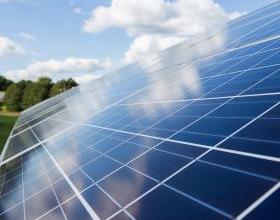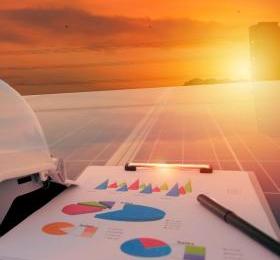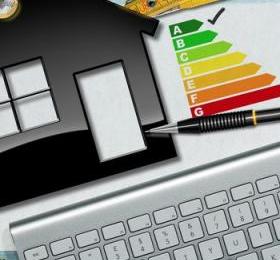The effectiveness of the economic stimulus and environmental protection measures introduced with the 110% tax deduction, called "Superbonus", of energy efficiency costs, largely depends on winning three challenges: simplifying bureaucracy, being able to easily access the credit and requalify not only buildings but construction companies, who must understand that "the work must be done in a workmanlike manner, with planning and quality."
The possibility of extending the super-ecobonus to 2022 will largely depend on this.
This was said by Riccardo Fraccaro, Undersecretary to the Prime Minister, in a webinar organized by Italia Solare on the opportunities that the Relaunch Decree offers to the photovoltaic sector.
Ecobonus 110%: admitted requirements and interventions
The DLRilancio is full of news, also for the construction sector. The latest tax news concerns the work at home, which thanks to Fraccaro's proposal could be done practically for free.
A super ecobonus and sismabonus, enhanced to become irresistible, valid for works carried out from 1 July 2020 and until the end of 2021.
In order to take advantage of the super bonus, however, there are limitations: the bonus is paid only if it guarantees the improvement of at least two energy classes, which must be demonstrated with the Energy Performance Certificate (Ape), issued by a qualified technician. If the "jump" of two energy classes is not possible, one is enough, always recognized by Ape.
The anti-seismic adjustment interventions also entitle to a 90% deduction on the purchase of an anti-disaster insurance policy. Furthermore, the seismabonus has been enhanced from a geographical point of view: it can be requested in zones 1, 2 and 3.

Interventions that access the 110% boosted Ecobonus
- Thermal insulation of vertical and horizontal opaque surfaces affecting the building envelope with an incidence greater than 25% of the gross dispersing surface of the building itself [paragraph 1, letter a) of art. 119];
- interventions on common parts of buildings to replace existing winter air conditioning systems with centralized systems [paragraph 1, letter b) of art. 119]:
- condensing, with efficiency at least equal to product class A;
- heat pump, including hybrid systems;
- geothermal, also combined with the installation of photovoltaic systems and related storage systems;
- of microcogeneration;
- interventions on single-family buildings to replace existing winter air conditioning systems with systems [paragraph 1, letter c) of art. 119]:
- heat pump, including hybrid systems;
- geothermal, also combined with the installation of photovoltaic systems and related storage systems;
- of microcogeneration.
- all other energy efficiency measures provided for in article 14 of Decree-Law no. 63/2013 (such as the purchase and installation of windows including fixtures, solar screens and replacement of winter air conditioning systems with systems equipped with condensing boilers with efficiency at least equal to product class A), a provided that they are carried out jointly with at least one of the interventions described in the aforementioned points [paragraph 2 of art. 119].
These interventions are the so-called "driving" interventions, that is, only one of these is enough to bring the relief to which other interventions can enter 110%:
- the installation of solar panels;
- the assembly of energy accumulators connected to solar panels;
- the interventions foreseen by the old eco-bonus;
- the construction of the columns to charge the batteries of electric cars.
Access conditions for Ecobonus boosted to 110%
To access the 110% boosted eco-bonus you will need:
- compliance with the minimum requirements decree;
- improvement of 2 building energy classes or, if not possible (because you are already in the first two classes) achievement of the highest energy class to be demonstrated by the energy performance certificate (APE) issued by a qualified technician in the form of sworn declaration.
How does this super ecobonus work?
In practice, families and condominiums could transfer the tax credit accrued to banks, insurance companies or companies that carry out the work, which is now only granted to the incompetent. Fraccaro said:
"They will be these subjects (banks, companies or the companies that have done the works, ed) to anticipate the sums necessary to carry out the works and they will then collect the tax credit from the taxman, with the possibility also to transfer it further in next steps and without limits. "
Ecobonus 110%, who is entitled to it?
As we have seen, the possibility of doing housework for free depends on the type of interventions carried out. To establish the beneficiaries of the super deduction is paragraph 9 of article 119 of the relaunch decree:
- condominiums;
- natural persons, outside the exercise of business, arts and professions, on real estate units;
- the autonomous public housing institutes (IACP), however named as well as by the entities having the same social purposes as the aforementioned institutes, set up in the form of companies that meet the requirements of European legislation on "in house providing" for interventions carried out on properties, owned or managed on behalf of the municipalities, used for public residential construction;
- undivided housing cooperatives, for interventions on properties owned by them and assigned to their members for enjoyment.
Work on single-family buildings is only included in the bonus if used as a first home. As for the second houses, the works can be done for free only if they are part of an apartment building.
Given the high spending limits, and the exception made for second homes, it is clear that the facility was designed especially for apartment buildings. It seems that Parliament is working to include single-family houses among the second houses that can benefit from the eco-bonus, but to be sure it will be necessary to wait for the decree conversion law.





